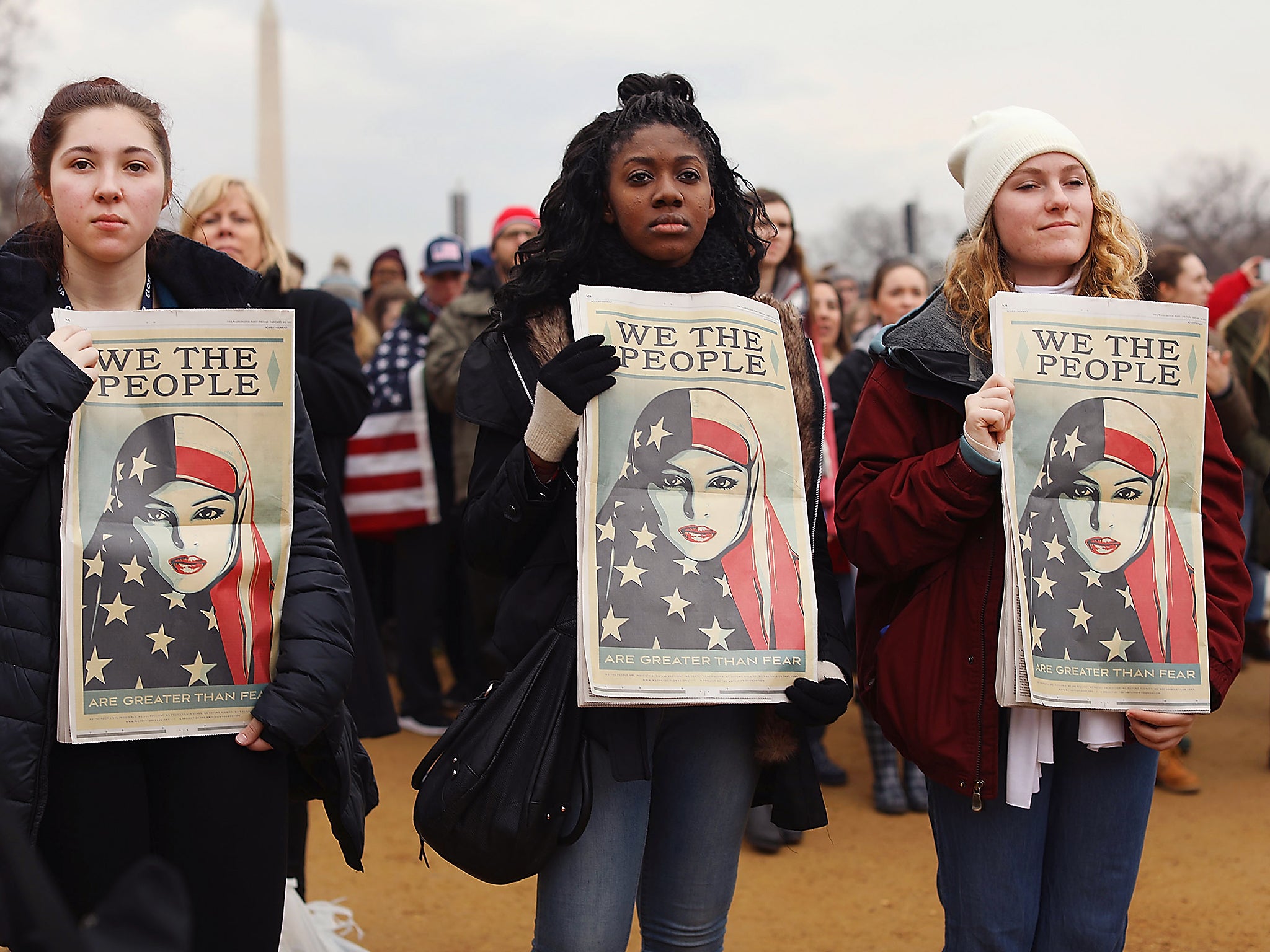For the millions who attended the Women's March, here's what you can do next
There was a lot of criticism that the march wasn’t intersectional enough. Christian women, don’t forget your Muslim sisters. White women, don’t forget your sisters of colour

On November 8, my notion of the USA as a country celebrating diversity and difference was stolen from me by Donald Trump’s election. It’s easy to lose hope in times like these, but the Women’s March was the message of solidarity that we all needed. This weekend, I stood in a crowd 500,000 strong and I’m still trying to process it. But one march isn’t enough.
I’ve been thinking about ways we can all make things better for women over the next four years. The march was our jump start, but now the real work begins, because we need to fight back.
Work to build bridges, not walls
There was a lot of criticism that the march wasn’t intersectional enough. In times like these it is more critical than ever that we come together and stand shoulder to shoulder with other oppressed groups. Cis women, don’t forget your trans sisters. Christian women, don’t forget your Muslim sisters. White women, don’t forget your sisters of colour. We must bridge gaps in the movement and work with all of our sisters and allied brothers so that we can build a powerful resistance and move forward together.
If you hear something, say something
If we stand by and allow our friends, family members, neighbours, or strangers on the street to make oppressive statements, it suggests that we support them. In the words of Desmond Tutu, “if you are neutral in situations of injustice, you have chosen the side of the oppressor”. If a family member says something oppressive over dinner – call them out on it. If you see a hate crime happening – report it, whether this be to the police or an online hate crime tracker.
If you see a hate crime and you feel it’s safe for you to intervene, don’t just look away. And make sure to show support to the person being targeted – ask them if they’re okay, offer to switch seats if you’re on the bus, or walk with them for a bit if you’re outside and they’d like you to. Let them know you’re there and you will stand alongside them.
Take care of yourself
Audre Lorde once said, “caring for myself is not self-indulgence, it is self-preservation, and that is an act of political warfare”. Remind yourself that one of the most radical and important things you can do to resist is to look after yourself. Make sure you’re getting enough sleep, eating regular meals and drinking enough water. Take that time out to read the books you’ve been meaning to, or listen to the music you’ve been wanting to, or go out for a walk. Build your own resilience. We are stronger when we practice self-care.

Write, call, or visit your local, state, and national elected officials
We must organise at local levels to elect leaders that stand up for our rights, but we must also make it known to the wider community that we will not stand for hate. This sends a strong message to the officials and the Trump supporters – but also to oppressed members of our community that we stand together in solidarity.
Volunteer or donate to a local non-profit or activist group
Giving time, resources or money (if economically able) to organisations like Planned Parenthood is a perfect way to resist Trump and to support reproductive justice. Some other groups you might want to volunteer for or donate to are those working for environmental protections, indigenous rights, black lives matter, LGBTQ+ rights, immigrant’s rights, sexual assault and domestic violence victim’s rights. Just imagine, if every person on the march gave just a few dollars or a few hours to a local domestic violence shelter, for example, it would have a huge effect for women affected in that community.
My biggest take away from this march is that we, women of all races, sizes, physical and mental abilities, citizenship statuses, sexualities, gender variations, religions and our allies are not alone. We are the majority and growing. We have found our voices. We are loud. We are strong. We are not going away. So here’s to our next steps together.
Join our commenting forum
Join thought-provoking conversations, follow other Independent readers and see their replies
Comments
Bookmark popover
Removed from bookmarks